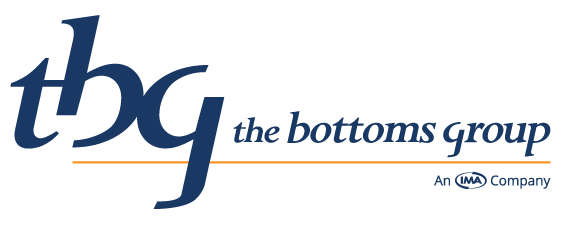BY DAVID BOTTOMS, REBC, RHU, CLU, CHFC
SENIOR VICE PRESIDENT, BENEFITS
Published: September 2021 Cobb Business Journal
As Delta variant concerns continue to mount and vaccine hesitancy persists among a large segment of the American workforce, employers anxious to return to a somewhat normal work environment are weighing a number of strategies in their attempts to safeguard employees and maintain functional businesses.
While a renewed focus on masking practices has dominated the headlines in recent weeks, one less talked about strategy being quietly considered by employers in particularly challenged industries relates to COVID-19 vaccine mandates. Now that Walt Disney Company, Walmart, and the U.S. Federal Government have announced vaccine mandates for employees, the prevalence of discussions on the topic are sure to increase.
Needless to say, the topic of vaccine mandates is highly controversial, so in the interest of trying to provide balanced perspective to the topic, this article will focus on key considerations and potential pitfalls that employers should keep in mind should they begin to consider whether mandating COVID-19 vaccination is a wise strategy for their workplace.
Obviously, one key concern for employers is ensuring that any policies put into place are legal and with available COVID-19 vaccines being distributed under an “Emergency Use Authorization” (EUA) the legality of any COVID-19 vaccine mandate while the EUA status remains is a bit of an open question.
In time the FDA is almost certain to fully approve the Moderna, Pfizer, and Johnson & Johnson vaccines and, even after this occurs, there will be a great deal of remaining complexity to this topic so I would strongly recommend any employer considering workforce policies and procedures related to COVID-19 (or any other complex topic) engage the support of a qualified labor attorney to ensure all aspects of any potential plan is on solid legal footing.
That said, the Equal Employment Opportunity Commission (EEOC) released guidance on May 28th, 2021 stating that while it is beyond the EEOC’s jurisdiction to discuss legal implications of a vaccine’s EUA status, they could confirm that federal discrimination laws do not prevent an employer from requiring all employees physically entering the workplace to be vaccinated for COVID-19.
However, the EEOC further clarified that it is essential that any employers making such a mandate comply with the reasonable accommodation standards included in Title VII of the Civil Rights Act and the Americans with Disabilities Act (ADA), etc. such that individuals with “a disability or sincerely held religious belief, practice or observance” are not required to be vaccinated unless providing them with an accommodation would pose an “undue hardship” on the operation of the employer’s business.
Obviously, the lawsuits certain to occur related to this issue will argue back and forth regarding many details not least of which being the practical definitions of “sincerely held religious belief, practice or observance” and “undue hardship”. While the phraseology above is currently the same as that used when employers attempt to implement certain wellness plans within their workforce, the applicability of the Civil Rights Act and the ADA rules to COVID-19 vaccines is obviously a relatively new consideration sure to be aggressively litigated.
Regardless of the legality of an employer’s potential COVID-19 vaccine mandate, as a practical matter, in a tight labor market, employers should carefully consider the potential for employee defection if their current employer mandates vaccines and the employee has the opportunity to transition employment to another organization with less stringent rules. Case in point, this workforce related concern is one key reason that many employers, even many within the health care industry, are treading very carefully on the topic of vaccine mandates.
As we have all learned over the past 17 months, COVID-19 related issues and responses are complex, controversial, and constantly evolving. In the months ahead, the volume of discourse regarding COVID-19 vaccine mandates is certain to increase not only in the workplace, but also within broader societal contexts.
Each individual and employer needs to make the decisions best for them, but for those employers who choose to move ahead with vaccine mandates, I would recommend that they employ the old adage to “measure twice and cut once” since any mandates put into place and enforced without ironclad preparation and compliant communications could leave the employer feeling a bit sick when it is all said and done.
View article in Cobb Business Journal if you have a subscription.


